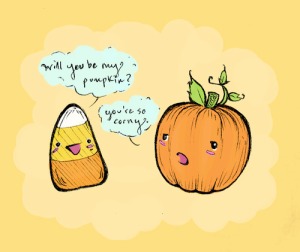Strange title, right? A domestic loner is my fancy way of saying that I live alone, no roommates, nothing #loner. While there are many times that I undoubtedly miss having roommates, or miss living at home in Barbados with my family, this past year and a half have taught me a lot about myself.
My disclaimer with this post is this: I am describing how living alone helps me to say healthy i.e. it is what works for me, because it deals with my main issues (I’m talking to you, lack of self control)…and therefore may not be relevant to everyone else. That being said, if you are similar to me when it comes to your eating habits, maybe what I say here will be able to help you, or at least give you something to think about.
It’s quite a simple premise really. When I live alone, I am in total control (muahahaha). Actually, that’s technically not true, as my parents are a huge help financially (thanks Mum and Dad for helping me be an eternal student, yay!). Anyways, my point is that I am the one who does all of the grocery shopping, making the decisions about what food dares pass the threshold of my apartment. This is a vital point, because I have learned that I am an “eat it because it’s there, and it’s probably yummy, so who cares about actually being hungry” kind of person. Sound familiar to anyone?
Back home in Barbados, there is a nice big cupboard that always contains snacks and goodies, and a fridge with tons more food items than in my apartment (seriously it’s sometimes depressing…I wish I had a smaller fridge so it didn’t look so pathetically empty at times). I have thus discovered that when I live in a fully stocked house, I tend to eat more food in general, as well as a greater proportion of snack foods. Conclusion: I have very little self-control in that situation.
Thankfully, I have learned that where my self-control does enter into the picture is in the supermarket. If the food has been bought, and is sitting in front of me, I want to eat it. As it turns out, however, I am quite good at not buying it in the first place. I go to the supermarket with a plan in mind (and a somewhat limited budget; certainly not limited enough that I would ever go hungry, but it still helps me to curb temptation of buying anything “unnecessary”), and I stick to my plan. I start my sticking to the outskirts of the store, where you almost always find fresh produce, milk, eggs etc. Only then do I venture into the belly of the store, which houses all of those nicely over-processed foods that I would typically classify as “less healthy”. I only go into the aisles that house something I specifically needs, for example, canned tuna or popcorn kernels (side note: I’m addicted to popping my own popcorn). My universal advice at this point would be, don’t stroll through the aisles just because. When you do that, the simple truth is that there are more opportunities for unhealthy foods to catch your eye, and therefore more temptations to try and overcome.
Now let’s jump to being back at home. What do I eat? The food that I’ve bought *clap clap clap*. I don’t eat Pringles, because there are none in my cupboard. I do eat lots of veggies, because there are a whole bunch (and if I ever let them go bad, it’s like watching my wallet cry and money burn). Sure, sometimes I randomly crave a certain kind of snack or dessert that I didn’t buy…but I can’t really do anything about that! My cravings aren’t bad enough that I’m gonna go back outside in this -10 degree weather for some chocolate covered almonds (omg now I really want some chocolate covered almonds, damn it). What I end up doing is finding something to snack on that is available (cue: orange slices, popcorn, peanut butter and banana). You get me?
So there it is – you’ve read my ramblings, all for it to amount to the fact that I am able to be healthier when I live alone, by simply not bringing less healthy foods into my apartment building. Fascinating stuff. I’m such a genius. Okay but don’t roll your eyes at me please, because the fact is, it really works for me! That’s not to say that I’m not flexible – I still go out to eat, and have pizza and ice-cream, because life should be fun and therefore ice-cream should be eaten. But when it comes to my little haven of loneliness that is my apartment, I like to keep things as simple and healthy as I can 🙂 And wreak havoc on wine and pasta when i eat out 😉

